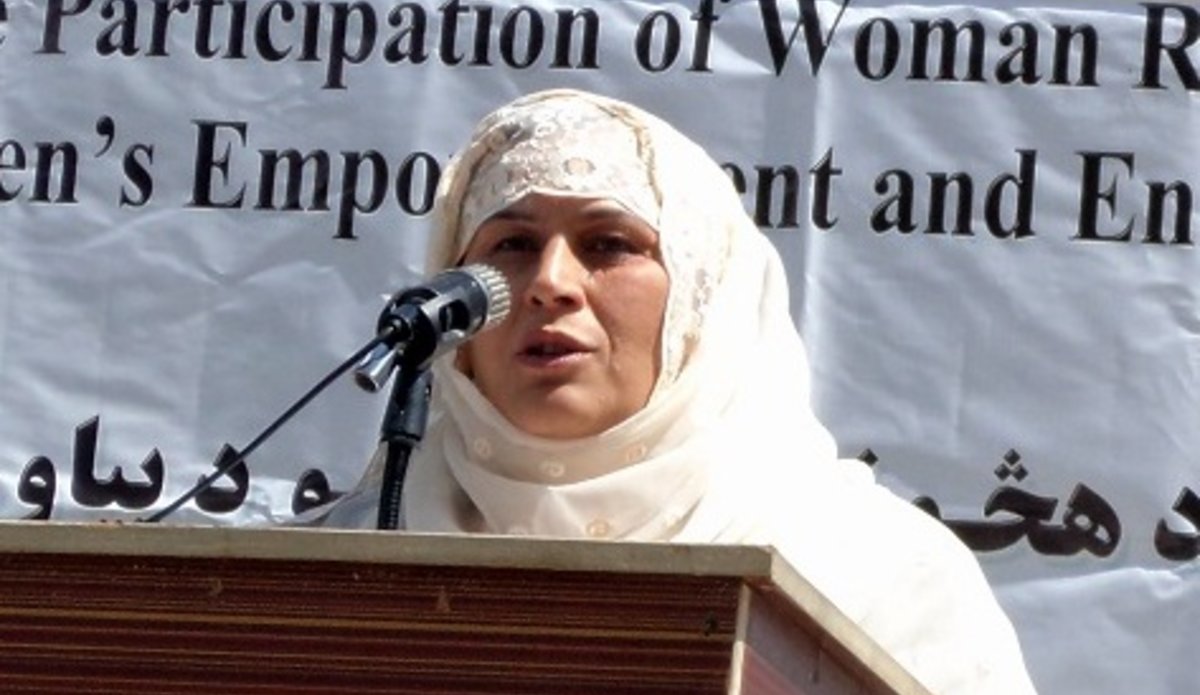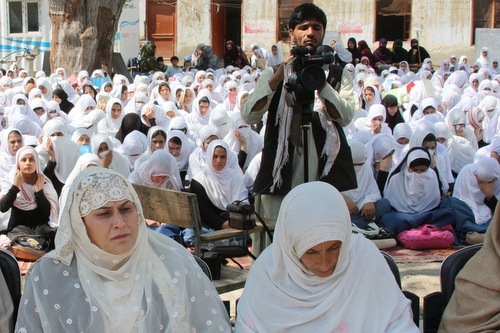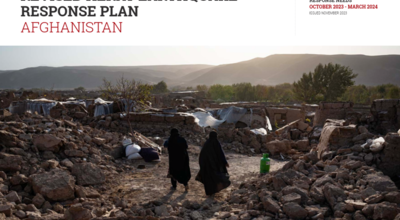Hundreds of girls attend UN-backed conference on women’s issues
LAGHMAN - Women leaders in Afghanistan’s eastern province of Laghman encouraged girls attending a conference on women’s issues to focus on their education so they can play a more powerful role in Afghan society.
Zifunoon Safay, a member of the Lower House of the Afghan Parliament from Laghman, and Brikhna Safay, a Legal Advisor to the Department of Public Health, were the featured speakers. They talked at length about their experiences, achievements and activism related to women’s rights.
The conference, organized by the eastern regional office of United Nations Assistance Mission in Afghanistan (UNAMA) with the Directorate of Women’s Affairs, the Education Department and non-governmental association Development and Change, was held to encourage girls in the province to become active members of Afghan society.
“My father was an ordinary farmer and had little income,” said Ms. Zifunoon. “My mother used to sell chickens and eggs to supplement my father’s income and to support my education at school. Although we were very poor, my intentions were to complete my education and become a successful woman.”
Ms. Brikhna, for her part, talked about how she was pursuing her education in Kabul during the war. “Many of my classmates quit school,” she said. “But I continued because I was sure that, one day, the fighting would stop and I would be able to use my knowledge and energy to serve my people.”
Both women highlighted the importance of education for girls and discussed issues related to security threats, cultural constraints, discrimination and violence against women.
In 2009, Afghanistan enacted the Elimination of Violence against Women (EVAW) law, which criminalizes 22 acts of violence against women, including rape and beating, and specifies punishment for perpetrators.
UNAMA’s latest report on the implementation of the Elimination of Violence against Women (EVAW) law, released in December 2013, found that Afghan authorities registered more cases of violence against women in 2013, but the number of prosecutions and convictions under the law remained low, with most cases settled by mediation.
The conference was attended by some 500 girl students and teachers, government officials, civil society representatives and members of the media.
 UN
UN









